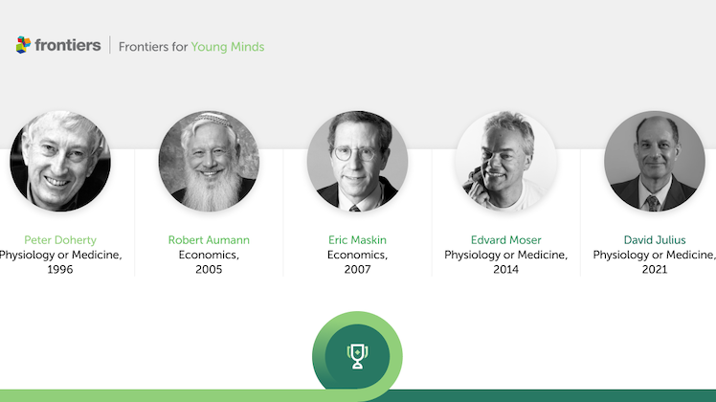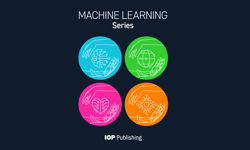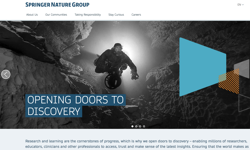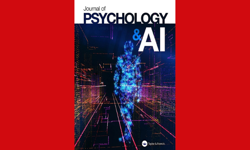
Frontiers for Young Minds, a non-profit, open-access scientific journal for kids, has announced the publication of five new articles written by Nobel Prize-winners. The articles complete the third volume of the Nobel collection, bringing the number of featured Laureates and their discoveries to 30.
The authors were awarded the Nobel Prize for their contributions to the fields of economics, physiology, and medicine. Within each article, the authors explain their ground-breaking work and the practical or future applications of their science.
Frontiers for Young Minds expands on the articles below:
- Game Theory— More Than Just Games, written by Robert Aumann, awarded the Nobel Prize in Economics in 2005. Game theory is not just about games. It deals with real-life situations like business, politics, war, or even sharing donuts. Robert Aumann enhanced conflict resolution using game theory – the logic which helps us understand how to improve our decisions, specifically in situations where people might disagree.
- Can We Use Math to Design a Brighter Future? written by Eric Maskin, awarded the Nobel Prize in Economics in 2007. Math helps to develop new technologies and engineering techniques that advance our society. Eric Maskin laid the foundations of mechanism design theory, a branch of economics that can shape economies to reach social goals such as reducing pollution and establishing fair voting systems.
- T Killer T Cells: Immune System Heroes, written by Peter Doherty, awarded the Nobel Prize in Physiology or Medicine in 1996. Our immune system keeps our body healthy by fighting microbes and protecting us from infections. Peter Doherty discovered how the immune system recognizes virus-infected cells and the clever way our T-cells identify and kill them. This knowledge could develop new treatments for autoimmune diseases and cancer.
- Can Grid Cells Help Us Understand the Brain? written by Edvard Moser, awarded the Nobel Prize in Physiology or Medicine in 2014. Grid cells are special brain cells that play a key role in the brain’s navigation system. Edvard Moser co-discovered that these cells generate a positioning system that allows us to navigate our environment and estimate distance. Rapidly developing research on grid cells could eventually help us understand how cognition works.
- Hot Chili Peppers Help Uncover the Secrets of Pain, written by David Julius, awarded the Nobel Prize in Physiology or Medicine in 2021. Receptors are small sensing structures present on cell membranes that react to stimuli from the environment or from within the body. David Julius identified a sensor in the nerve endings of the skin that responds to pain and heat. Using chili peppers to study how receptors relate to pain could help develop better drugs for intense and long-term (chronic) pain.
Launched in 2013, Frontiers for Young Minds says it publishes accessible and engaging articles in collaboration with exceptional researchers to inspire the next generation of scientists. It provides reliable and up-to-date information on various topics in science, including in technology, engineering, mathematics, and medicine (STEMM). The unique Frontiers for Young Minds review process gives kids confidence and communication skills to engage with leading researchers worldwide and empowers them to ask questions and think critically before they validate the scientific information they read.
Commenting on the new articles, head of program Laura Henderson says: “Since launching our Nobel Collection volume 1 in 2021, we have been blown away by the impact it has made. With over 1.8 million views and downloads worldwide, we are reaching science enthusiasts all over the world as part of our mission to inspire and engage kids with accessible scientific content. To now have a total of 30 Nobel Prize winners helping us to communicate scientific concepts to young minds is a huge achievement for all our team. I look forward to reaching even more young learners with these articles and our new partner collections coming later this year.”
You can discover all the Nobel Collections here:
Keep up-to-date with publishing news: sign up here for InPubWeekly, our free weekly e-newsletter.












